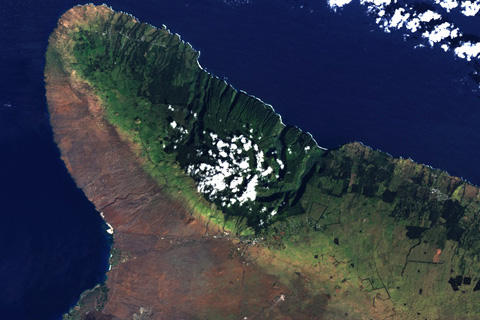
On Hawaii’s Big Island, prevailing Pacific trade winds from the northeast bring more rainfall to northern & eastern slopes, leading to dramatic differences in vegetation on different sides of the island.

On Hawaii’s Big Island, prevailing Pacific trade winds from the northeast bring more rainfall to northern & eastern slopes, leading to dramatic differences in vegetation on different sides of the island.
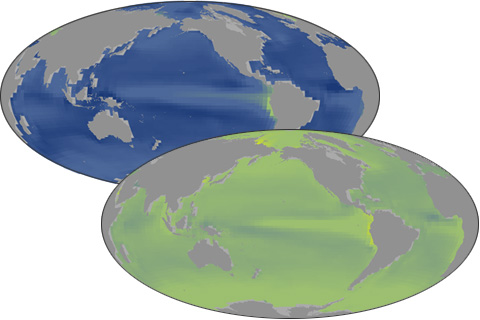
Rising concentrations of carbon dioxide in the air lead to more acidic seawater. More acidic water corrodes minerals that many marine creatures rely on to build their protective shells and skeletons.
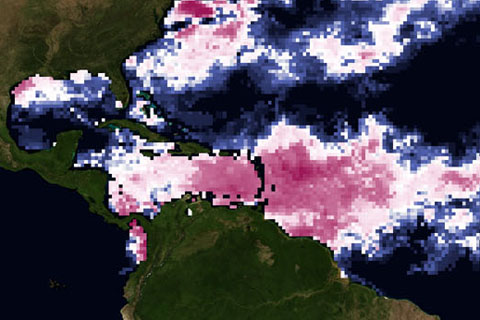
How do warm waters in the Caribbean this year compare to conditions in 2005, when high ocean temperatures triggered the worst mass coral bleaching event ever seen in the region?
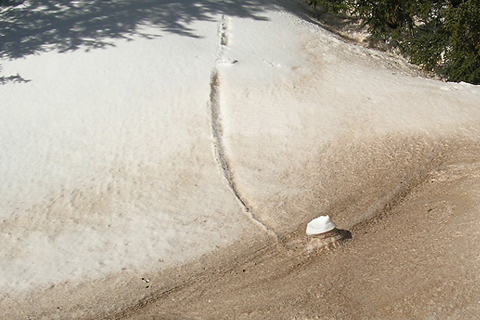
When the winds are right, dust from the deserts of the U.S. Southwest blows onto the snow-capped Rocky Mountains. How do dirty snowfields contribute to the loss of more than 250 billion gallons of water in the Colorado River?
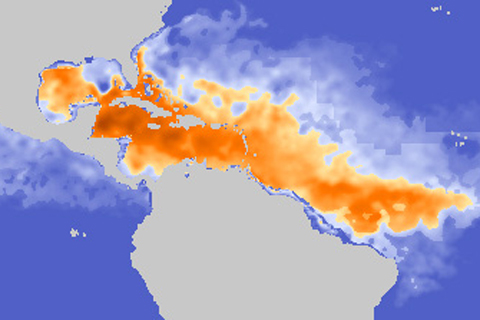
Identifying ocean areas with a deep layer of warm water—places that are storing large amounts of heat—is important for scientists trying to predict whether or not a hurricane will intensify.
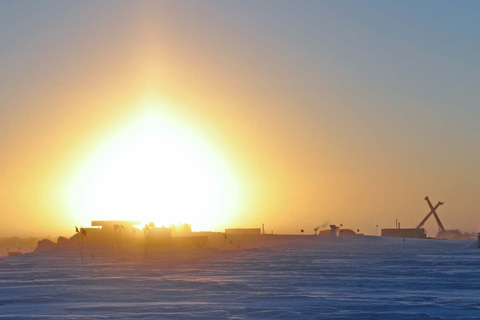
As the sun sinks below the horizon at the South Pole, NOAA researchers stationed at the bottom of the world settle in for six months of darkness. Throughout the Antarctic winter, the researchers will collect air samples to help maintain long-term records of trace gases, aerosols, and solar radiation.
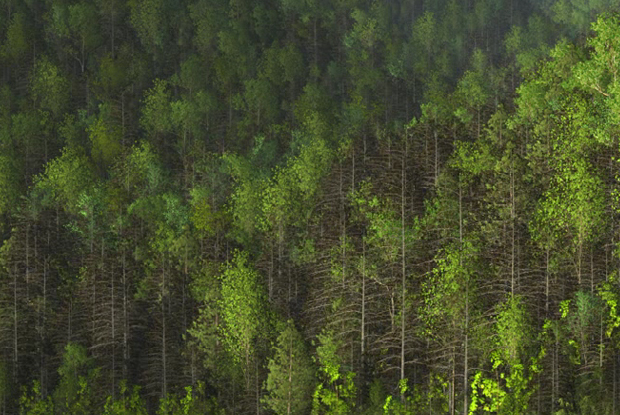
Watch what happens when an invasive insect takes its toll on eastern hemlock trees in the Southern Appalachian Mountains.
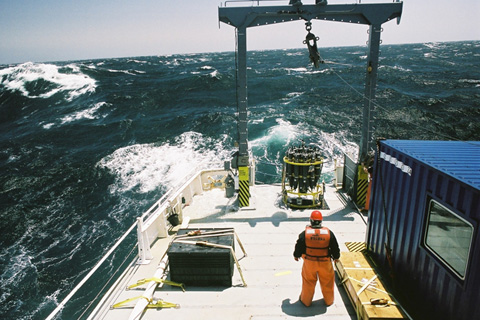
In the summer of 2007, as oyster growers and hatchery managers in Washington state were experiencing yet another failed oyster harvest, Dr. Richard Feely set off on a research cruise to find out if the seawater itself was the culprit…
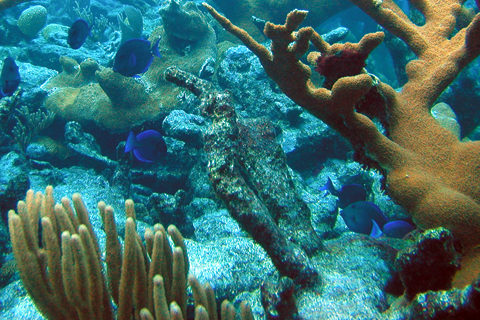
Coral reefs are important and productive ocean ecosystems, providing shelter and protection for diverse sea life. NOAA's latest seasonal outlook for coral bleaching shows potential for bleaching along the Pacific coast of Mexico and islands in the equatorial central Pacific Ocean.
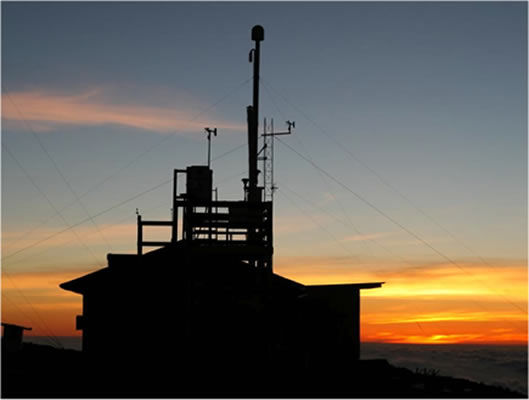
Carbon dioxide is everywhere: in the air, rising from cracks in the ocean floor, and in your soda can. Now it's showing up in the news! Find out why carbon dioxide is such a hot topic, and why it's going to be around for a long, long time.